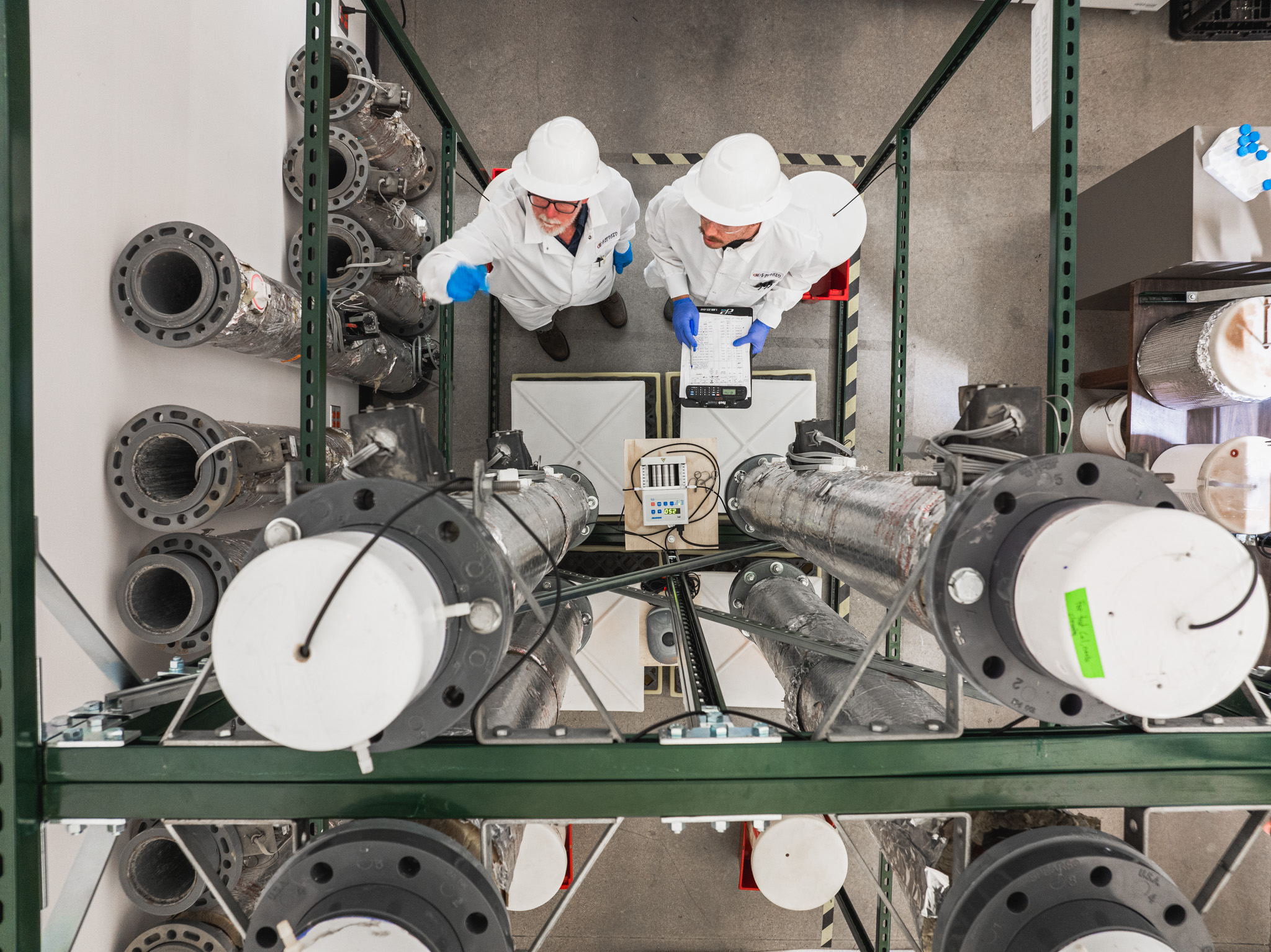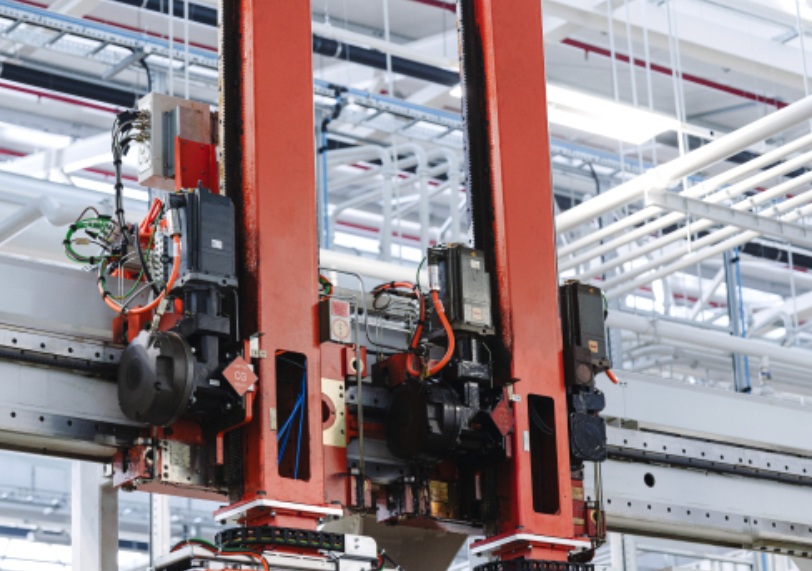Welcome to Climate Tech Pulse, your daily dose of market intelligence helping fuel the fight against climate change. From groundbreaking investments to cutting-edge research, we’re bringing you the latest in climate tech that’s shaping our future.
Don’t miss out on tomorrow’s climate solutions – subscribe now to stay ahead of the curve! https://lnkd.in/dwr7B9XJ
Today’s newsletter:

🔝Today’s Top Story: The Biden-Harris Administration, via the U.S. Department of Energy (DOE), is investing over $3 billion in 25 projects across 14 states to bolster the domestic battery supply chain.
📊 Today’s Data Point: Net Zero Stocktake 2024 Highlights Gaps and Progress in Global Emission Reduction Efforts.
🌳 Climate Insider Intelligence: The Climate Tech Investors Summit – the Future of Urban Sustainability.
Biden-Harris Administration Invests $3 Billion in U.S. Battery Supply Chain: 25 Projects to Create Thousands of Jobs and Boost Energy Security
Strategic Investment in U.S. Battery Manufacturing
The Biden-Harris Administration, through the U.S. Department of Energy (DOE), is investing over $3 billion in 25 projects across 14 states to strengthen the domestic battery supply chain. These initiatives will enhance the production of advanced batteries and battery materials, supporting over 8,000 construction jobs and 4,000 operator jobs. This investment is crucial for reinforcing the U.S. energy grid, advancing the electrification of transportation, and securing the nation’s economic competitiveness.
Driving Clean Energy and Economic Growth
The DOE’s selected projects, managed by the Office of Manufacturing and Energy Supply Chains (MESC), aim to retrofit, expand, and build new facilities for battery-grade materials, components, manufacturing, and recycling. This effort aligns with the Biden-Harris Administration’s broader clean energy industrial strategy, which has already attracted $120 billion in private sector investment in the EV supply chain. The program is integral to enhancing America’s energy security and positioning the U.S. as a leader in global clean energy efforts.
Creating Jobs and Advancing Justice40 Initiative
More than half of the selected projects have committed to labor agreements, creating good-paying union jobs across the country. Nearly 90% of these projects are located in or near disadvantaged communities, advancing President Biden’s Justice40 Initiative, which aims to ensure that 40% of federal climate and clean energy investments benefit communities that have been historically marginalized and overburdened by pollution. This approach not only supports economic growth but also addresses social and environmental justice. Read More
Quote of the Day
“The Biden-Harris administration is using every available tool to onshore and friend-shore the supply chain for EVs and batteries, working with our allies and partners, for the benefit of our national security, our economy, and our planet,” said John Podesta, Senior Advisor to President Biden for International Climate Policy.
Significance:
Supply Chain Resilience: Emphasizes the administration’s focus on strengthening and securing the U.S. supply chain for EVs and batteries by reducing dependence on foreign sources and enhancing domestic production.
Strategic Alliances: Highlights the importance of international cooperation with allies to build a robust and reliable supply chain, which is critical for both economic stability and national security.
Climate and Economic Goals: Connects the administration’s efforts to the broader objectives of safeguarding national security, boosting economic growth, and addressing climate change, reflecting a comprehensive approach to policy-making.
Market Movers
- AM Green Technology and Solutions B.V. has signed binding agreements to acquire Chempolis Oy and Fortum 3 B.V., underscoring its commitment to innovative technology and the establishment of large-scale bio refineries aimed at producing high-value green products to drive global decarbonization across aviation, fuels, chemicals, and other industries. Read More
- German energy startup Reverion has secured $62 million in Series A funding, led by Energy Impact Partners, to initiate serial production of its “carbon-negative” power plants, with participation from notable investors including Honda and the European Innovation Council Fund. Read More
- PPL Corporation has secured an agreement with the U.S. Department of Energy for up to $72 million to fund a carbon dioxide capture R&D project at its Louisville, Kentucky, natural gas facility, with initial funding of $4.9 million awarded to kick off Phase 1 in collaboration with the University of Kentucky, representing a total investment exceeding $100 million. Read More
Tech Spotlight
Breakthrough in Potassium-Based Batteries with Dendrite-Free Metallic-Potassium Anode
Source: Northeastern University Research Publication, October 4, 2023
Scientists have made a significant advancement in potassium-based batteries by developing a dendrite-free metallic-potassium anode. This innovation stabilizes the anode, which is crucial for enhancing battery safety and performance, potentially leading to more efficient and reliable energy storage solutions.
Commercial Viability
Performance Metrics:
The newly developed anode features a KF/Zn-rich hybrid interface that significantly improves electrochemical performance. It maintains stability over 2,000 hours of cycling with minimal voltage fluctuation, demonstrating potential for practical applications.
Cost-Effectiveness:
Potassium metal batteries (PMBs) are emerging as a viable alternative to lithium-ion batteries due to potassium’s abundance, making them a more cost-effective energy storage option.
Technical Viability
Innovative Structure:
The researchers utilized a reactive prewetting technique to create a dual-layer interface. Potassium fluoride (KF) acts as an electron tunneling barrier that prevents dendrite growth, while zinc (Zn) nanocrystals enhance electrical conductivity and ion transport.
Independent Functionality:
The hybrid interface layer stabilizes the anode, facilitating efficient ion and electron flow, which is essential for long-term battery performance. The study showcases the anode’s capability to maintain a high reversible capacity of 61.6 mAh/g at 5 C for over 3,000 cycles.
Environmental Viability
Sustainable Energy Development:
The advancement in PMBs contributes to the development of safer, high-performance batteries, addressing critical safety issues in energy storage technologies. This aligns with global goals for renewable energy and sustainable practices.
Climate Alignment:
By improving battery safety and efficiency, this breakthrough supports the broader transition to renewable energy systems, which is essential for reducing carbon emissions and achieving climate targets.
Scaling Potential
Commercialization Pathways:
The success of the dendrite-free anode could facilitate the widespread adoption of PMBs in various energy storage applications, enhancing energy density and battery lifespan.
Investment and Growth:
This innovation is likely to attract investment in potassium battery technologies, driving further research and development efforts in the field of renewable energy storage solutions.
Long-Term Implications
Transformative Impact on Energy Storage:
This breakthrough represents a crucial step towards mainstreaming potassium metal batteries, potentially transforming the landscape of energy storage technologies and improving reliability for large-scale applications.
Future Prospects:
If successfully commercialized, the dendrite-free potassium metal anode could revolutionize energy storage systems, significantly enhancing the sustainability and efficiency of renewable energy solutions. Read More
Policy Pulse
This section includes global updates on climate change policy, governance and regulation.
ADB grants Indonesia a $500mn energy transition loan.
The Asian Development Bank has approved a $500 million loan to Indonesia to facilitate its energy transition through a program aimed at establishing a clean energy regulatory framework and ensuring a just transition to net zero by 2060, amidst significant reliance on fossil fuels which still dominate its power generation capacity.
Why it Matters: This policy development is crucial for Indonesia to effectively manage its transition from fossil fuels to renewable energy, ensuring economic stability and environmental sustainability while addressing the complexities of achieving net zero emissions by 2060. Read More
Prudential launches a framework for climate transition investment with a focus on emerging markets.
This policy development is significant as it provides a structured framework for climate transition financing that addresses the urgent need for standardized definitions and flexible investment strategies in emerging markets, ultimately facilitating the transition from high-carbon to low-carbon projects while considering local challenges.
Why it Matters: This policy development matters because it establishes a clear, adaptable framework for financing the transition to a low-carbon economy, crucial for addressing climate challenges in emerging markets and fostering sustainable investment practices. Read More
Today’s Climate Data Point
Urgent Need for Action: Net Zero Stocktake 2024 Highlights Gaps and Progress in Global Emission Reduction Efforts
Source: Net Zero Stocktake 2024 Report
A recent report titled “Net Zero Stocktake 2024” emphasizes the critical need for global efforts to limit average temperature rise to 1.5°C. The report outlines that achieving net zero carbon dioxide emissions by the early 2050s is essential, along with significant reductions in other greenhouse gasses, which should also reach net zero approximately two decades later.
Key Findings:
- Target Consolidation: Net zero target-setting has increased across various entities, with states and regions up by 28%, cities by 8%, and companies by 23% since the previous year.
- Current Status: Over 40% of non-state entities lack any emission reduction or net zero targets, including major companies like Tesla and Nintendo.
- Integrity Issues: While the number of credible net zero targets is rising, only 5% or fewer entities meet minimum integrity criteria for procedural and substantive measures.
Implications:
- Vertical Alignment: National-level net zero targets often serve as a ceiling for subnational ambitions, highlighting the need for improved coordination between levels of government.
- Autonomy and Progress: Subnational governments that can set independent climate policies are making notable advancements, particularly in the transport and building sectors.
Methodology:
- Entity Tracking: The report tracks over 4,000 entities, with at least 1,750 now having net zero targets, an increase from 769 in December 2020.
- Geographical Trends: Notable increases in net zero targets have been observed in Asian companies, particularly in China, India, Japan, and South Korea.
Future Directions:
- Strengthening Targets: There is a pressing need for both short- and long-term targets to be established and existing targets to be strengthened to enhance credibility.
- Upcoming Opportunities: The submission of new emissions-cutting NDCs at COP30 in Brazil in 2025 presents a critical moment for advancing net zero commitments.
Conclusion: The report underscores a world poised for progress toward net zero, yet it emphasizes the urgent requirement for concrete implementation plans to transform targets into action. Read More
In Other News
This section covers notable news highlights in climate tech.
Climate Insider has partnered with 🌏 The Atlas Capital & Climate Tech Coalition to cover The Climate Tech Investors Summit in New York City on September 24-25, 2024, an event focusing on funding and advancing climate solutions through discussions and networking with industry leaders and investors. Learn More
Climate Insider Intelligence: The Climate Tech Investors Summit – the Future of Urban Sustainability

🌍 Get Ready for the Climate Tech Investors Summit! 🌍As we face unprecedented environmental challenges, the role of climate technology has never been more crucial. Join us in New York City during Climate Week NYC for the Climate Tech Investors Summit, a premier gathering of investors, innovators, and policymakers dedicated to impactful climate solutions. This year’s summit will feature industry leaders from firms like Lowercarbon Capital and BlackRock, engaging discussions on decarbonization strategies, and exclusive networking opportunities with cutting-edge startups vying for the Adaptive Cities Innovators Awards. Don’t miss your chance to be at the forefront of climate action and investment—this event could shape the future of sustainability. Read More








